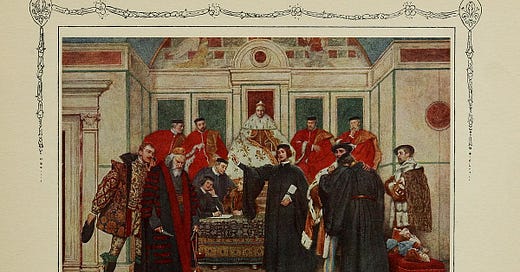Portia, disguised as a lawyer in the court of Venice, declares that the bond between the money-lender Shylock and the merchant Antonio is in good legal order, and that therefore he may cut, according to that bond, a pound of flesh from the merchant’s body wherever he may please. Well, it pleases Shylock to cut it nearest to Antonio’s heart, because he …
Listen to this episode with a 7-day free trial
Subscribe to Word & Song by Anthony Esolen to listen to this post and get 7 days of free access to the full post archives.












